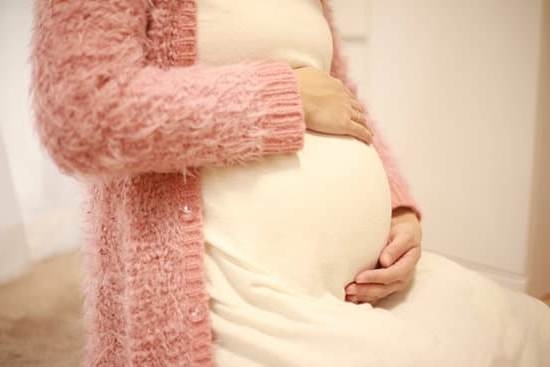Is diarrhea a pregnancy symptom? Many women experience a variety of symptoms during pregnancy, some more well-known than others. Understanding the difference between normal bodily changes and potential warning signs is important for expecting mothers. Diarrhea can be a common occurrence during pregnancy, and it is essential to know what to expect and when to seek medical attention.
During pregnancy, the body undergoes significant hormonal and physical changes which can result in a wide range of symptoms. These symptoms can vary from woman to woman and even from one pregnancy to another. While nausea, fatigue, and food cravings are commonly recognized as early signs of pregnancy, other symptoms such as diarrhea may not be as well understood.
It’s crucial for expectant mothers to be informed about all possible symptoms of pregnancy in order to ensure the health and safety of both themselves and their baby. In this article, we will explore the possibility of diarrhea as a symptom of pregnancy, common early pregnancy symptoms, the possible causes of diarrhea during this time, as well as how to manage it effectively without compromising the health of the mother or fetus.
Understanding Diarrhea
Diarrhea is a common gastrointestinal issue characterized by frequent bowel movements and loose, watery stools. It can be caused by a variety of factors such as dietary changes, infections, or underlying health conditions. Understanding the causes and symptoms of diarrhea is important for everyone, but it becomes particularly crucial for women who are pregnant.
What Causes Diarrhea?
Diarrhea can be caused by a range of factors including food poisoning, viral or bacterial infections, medication side effects, or even stress. During pregnancy, hormonal changes and prenatal vitamins can also contribute to digestive issues leading to diarrhea. It’s essential to identify the cause of diarrhea in order to effectively manage and treat it.
Symptoms of Diarrhea
The main symptom of diarrhea is the passing of loose or watery stools more frequently than usual. Other symptoms may include abdominal cramping, bloating, nausea, and dehydration. These symptoms can be uncomfortable and concerning for anyone experiencing them, especially if they are pregnant.
Impact on Pregnancy
Experiencing diarrhea during pregnancy
Common Early Pregnancy Symptoms
Pregnancy brings about a multitude of changes in a woman’s body. Some of these changes can cause discomfort, while others may be more subtle and easily unnoticed. It is important for women who are planning to conceive or suspect that they are pregnant to be aware of the early signs and symptoms of pregnancy. By being informed, women can better manage their health during this crucial period.
Missed Period
One of the most well-known early signs of pregnancy is a missed period. This occurs due to the halt in the menstrual cycle as the fertilized egg implants itself into the uterine wall.
Morning Sickness
Nausea and vomiting, often referred to as morning sickness, is another common symptom experienced by pregnant women. It can occur at any time throughout the day and tends to peak in intensity during the first trimester.
Increased Urination
Many women experience an increased frequency of urination shortly after conceiving. This occurs as a result of hormonal changes and an increase in blood volume, putting pressure on the bladder.
These symptoms, among others, are commonly associated with early pregnancy. However, it is important to consider other potential causes for these symptoms before assuming that they are solely due to pregnancy.
Is diarrhea a pregnancy symptom? While diarrhea is not frequently listed as one of the classic early signs of pregnancy, some women may experience it alongside other symptoms mentioned above. The sudden change in hormone levels during early pregnancy can impact digestion and lead to loose stools or diarrhea.
It is essential for pregnant women experiencing prolonged or severe diarrhea to seek medical advice, especially if other concerning symptoms such as abdominal pain or fever are present.
Is Diarrhea a Pregnancy Symptom?
During pregnancy, many women experience a variety of symptoms that may be completely new to them. Diarrhea is one such symptom that can occur during pregnancy, and it is important for expectant mothers to understand whether this is a common occurrence or if it requires medical attention.
Understanding Diarrhea
Diarrhea is characterized by loose, watery stools and can be accompanied by stomach cramps, bloating, and urgency to use the bathroom. It can be caused by a number of factors such as infections, food intolerances, medications, or stress. In the case of pregnancy, hormonal changes and dietary adjustments can also contribute to diarrhea.
Is Diarrhea a Pregnancy Symptom?
Yes, diarrhea can indeed be a symptom of pregnancy. It is listed as one of the early signs of pregnancy due to the increased levels of hormones such as progesterone. This hormone can relax the muscles in the digestive tract, leading to more frequent bowel movements and looser stools. Additionally, pregnant women may also experience changes in their diet and increased sensitivity to certain foods which can trigger diarrhea.
- Nausea and vomiting
- Frequent urination
- Fatigue
- Breast tenderness
It is important to note that while diarrhea is indeed a possible symptom of pregnancy, it should not be assumed without considering other potential causes. If you suspect you might be pregnant and are experiencing diarrhea along with other symptoms such as missed periods or breast tenderness, it would be advisable to take a pregnancy test or consult with your healthcare provider for confirmation.
Possible Causes of Diarrhea During Pregnancy
Many women wonder if diarrhea is a pregnancy symptom, and the answer is yes. Up to 1 in 5 women experience diarrhea during early pregnancy. The causes of diarrhea during pregnancy can vary, but hormonal changes, dietary changes, prenatal vitamins, and stress are common culprits.
Hormonal changes, particularly increased levels of the hormone progesterone, can slow down digestion and lead to diarrhea. Additionally, dietary changes or sensitivities can also trigger diarrhea during pregnancy. For example, some pregnant women may experience diarrhea after consuming foods high in fiber or artificial sweeteners.
Furthermore, prenatal vitamins, especially those containing iron, can cause gastrointestinal upset and lead to diarrhea. Lastly, stress and anxiety are known to affect digestive health and can result in diarrhea among pregnant women.
It’s important for pregnant women experiencing frequent or severe diarrhea to consult with their healthcare provider to rule out any underlying medical conditions that may be causing their symptoms. While most cases of pregnancy-related diarrhea are harmless and resolve on their own, it’s always best to seek professional medical advice for proper evaluation and guidance.
| Possible Causes | Percentage of Pregnant Women |
|---|---|
| Hormonal changes | Up to 20% |
| Dietary changes/sensitivities | Varies |
| Prenatal vitamins | Varies |
| Stress/Anxiety | Varies |
How to Manage Diarrhea During Pregnancy
During pregnancy, many women experience a variety of symptoms that can be uncomfortable and sometimes concerning. While some symptoms are well-known and expected, others may come as a surprise. One common question that many women have is whether diarrhea is a symptom of pregnancy. In this article, we will explore the potential connection between diarrhea and pregnancy, as well as ways to manage it if it does occur.
Managing diarrhea during pregnancy is important for both the health of the mother and the baby. The first step in managing diarrhea during pregnancy is to stay hydrated. It’s crucial to drink plenty of water to prevent dehydration, especially if the diarrhea is persistent. Avoiding sugary or caffeinated drinks is also recommended, as these can exacerbate diarrhea. Instead, opt for clear fluids like water or broth.
In addition to staying hydrated, it’s important to eat bland, easy-to-digest foods when experiencing diarrhea during pregnancy. This includes foods like bananas, plain rice or toast, applesauce, and chicken broth. Avoiding dairy products and fatty or spicy foods can also help to calm the digestive system and alleviate symptoms. If diarrhea persists for more than a few days or is accompanied by other concerning symptoms, it’s important to seek medical help promptly.
When to Seek Medical Help
During pregnancy, it is common for women to experience various symptoms as their bodies undergo significant changes. While some symptoms are normal and expected, others may indicate a more serious underlying issue. It is important for pregnant women to recognize when they should seek medical help for their symptoms, including diarrhea.
Here are some signs that indicate a pregnant woman should seek medical help:
- Severe or persistent diarrhea: If the diarrhea is severe, persists for more than a couple of days, or is accompanied by other concerning symptoms such as abdominal pain or fever, it is important to consult with a healthcare provider.
- Dehydration: Diarrhea can lead to dehydration, which can be dangerous during pregnancy. Signs of dehydration include dizziness, decreased urination, dry mouth, and excessive thirst. Pregnant women experiencing these symptoms should seek medical help.
- Blood in stool: The presence of blood in the stool could indicate a more serious underlying condition and warrants immediate medical attention.
- Rapid weight loss: Unintentional rapid weight loss due to diarrhea could be concerning during pregnancy and requires evaluation by a healthcare professional.
It is crucial for pregnant women experiencing persistent or severe diarrhea along with any of the aforementioned signs to seek prompt medical assistance. Ignoring concerning symptoms can potentially compromise both the mother’s health and the health of the unborn baby. Always consult with a healthcare provider when in doubt about any pregnancy-related symptom.
Remember that every woman’s body responds differently during pregnancy and what applies to one may not apply to another. It’s always best practice to consult with your healthcare provider if you have any doubts or concerns about your pregnancy symptoms – including diarrhea.
Conclusion and Final Thoughts
In conclusion, while diarrhea can be a common symptom during pregnancy, it is important to note that not every instance of diarrhea is directly related to being pregnant. It is essential for pregnant individuals to pay attention to their bodies and consult with their healthcare providers if they experience prolonged or severe symptoms. Understanding the potential causes of diarrhea during pregnancy can help women make informed decisions about managing their symptoms and seeking appropriate medical help when necessary.
It is also crucial for expecting mothers to practice good hygiene, maintain a healthy diet, stay hydrated, and avoid triggers that may worsen diarrhea. Additionally, seeking medical advice if diarrhea persists or is accompanied by other concerning symptoms like fever, severe abdominal pain, or dehydration is vital for ensuring the well-being of both the mother and the developing baby.
In general, experiencing symptoms such as nausea, vomiting, constipation, and yes – even diarrhea – are all normal parts of some pregnancies. However, it’s always best to consult with a healthcare professional to ensure that any discomfort experienced during pregnancy is properly managed and does not pose a risk to the mother or the baby.
By staying informed and taking care of one’s health during this special time, expecting mothers can navigate through these experiences with confidence and peace of mind.

Welcome to my fertility blog. This is a space where I will be sharing my experiences as I navigate through the world of fertility treatments, as well as provide information and resources about fertility and pregnancy.





